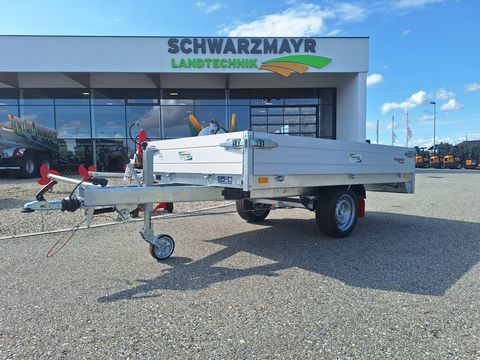
-4 %
3.072 €incl. VAT 20% Instead of:3.200 €
- YOM 2025
Nr. 69952PKW-Anhänger- mit Lademaße innen 2.760 x 1.700 - mit Einzelachse auflaufgebremst- mit Bordwände: Aluminium Hohlkammerprofil 300mm- mit Boden aus
Premium Gold dealer
Results

-4 %
3.072 €incl. VAT 20% Instead of:3.200 €
Nr. 69952PKW-Anhänger- mit Lademaße innen 2.760 x 1.700 - mit Einzelachse auflaufgebremst- mit Bordwände: Aluminium Hohlkammerprofil 300mm- mit Boden aus
Premium Gold dealer
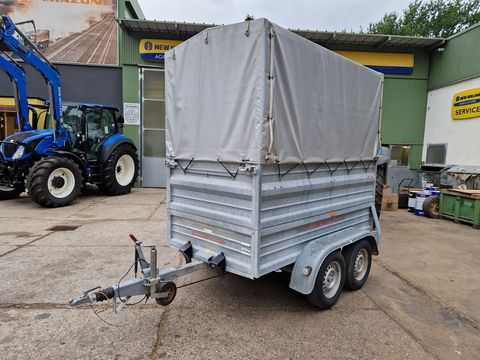
-3 %
3.201 €incl. VAT/ mediation Instead of:3.300 €
Abmessungen:Plateaugröße: 2300 mm lang, 1250 mm breit1. Bordwandhöhe: 400 mm2. Bordwandhöhe: 600 mmGesamte Innenhöhe mit Planenaufbau: 2000 mmStahl Bor
Pamberger Landmaschinentechnik GmbH
3123 Obritzberg

Premium Plus dealer
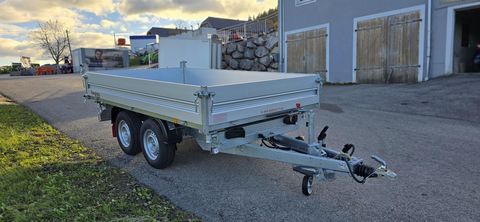
-8 %
7.819 €incl. VAT 20% Instead of:8.499 €
HzG 3500 kgALU, tandem, auflaufgebremst, Kippfunktion: Elektro-Kombipumpe, Batterie13-poliger Lichtstecker mit Ladekabel zur Batterie3100x1760x360mm,
FRAKAM Landtechnik GmbH
4596 Steinbach / Steyr

Premium Plus dealer
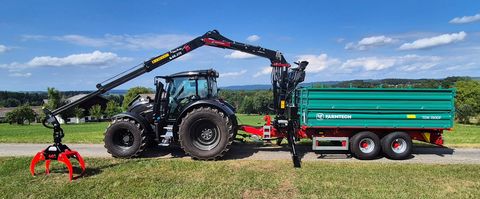
-3 %
79.443 €incl. VAT 20% Instead of:81.900 €
Austattung:- Brückenmaß: 4510x2200/2300 mm- Bordwand: 600 + 600 mm - Bereifung: 500/50 R17- Druckluftbremsanlage mit ALP Regler- Hardox Stahlboden (4mm)
Premium Gold dealer
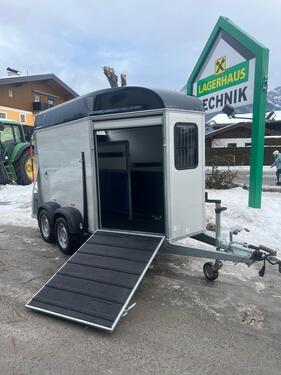
TOP
13.100 €incl. VAT 20%
Ausstattung:(lxbxh) 340x171x210 cm, Eigengewicht 800 kg , Gesamtgewicht 2500 kg Bereifung 195-65R 15, Wandhöhe 152 cm , Tür Rampen Kombination hinten
Premium Gold dealer
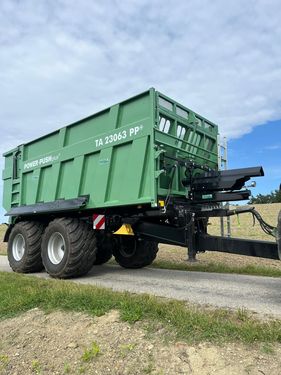
TOP
51.400 €incl. VAT/ mediation
Brantner TA 23063 PP+ Power Push Plus Abschiebewagen PRIVATVERKAUF Gebrauchtmaschine, Baujahr 202540 km/h COC Papier Ausstattung:2-Leiter Druckluftbremsa
Jedinger Landtechnik GmbH
4682 Geboltskirchen

Premium Plus dealer
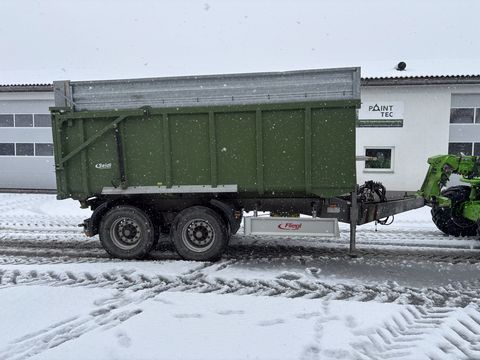
TOP
22.000 €incl. VAT 20%
Fliegl TMK im Guten Zustand 40km/hNur Getreide Transport gemacht damitGetreidetechnik Getreide ElevatorGetreide SchneckenFördertechnikPreis ist V
Point Tec - Handel & Agrardienstleistungen GmbH
4755 Zell an der Pram
27 days online
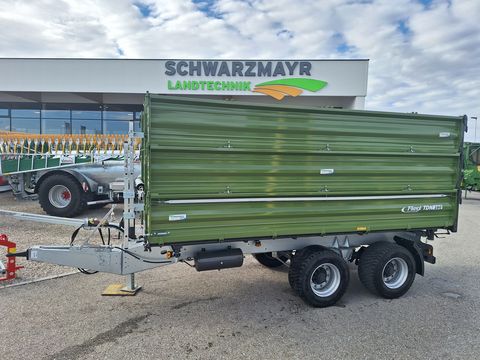
-8 %
26.864 €incl. VAT 20% Instead of:29.200 €
Nr. 63343Tandem- 3-Seitenkipper- mit 5000x2320/2220mm konischer Brücke- mit 600mm Grundbordwand- mit Bordwandversteifung in 1. Bordwand- mit 400mm Kornau
Premium Gold dealer
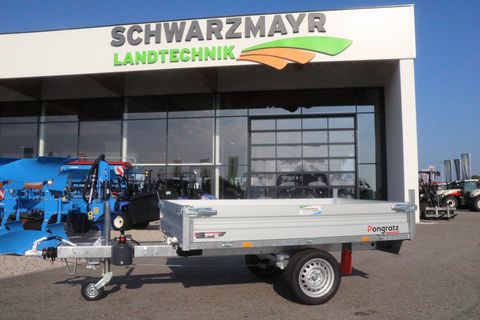
-3 %
3.091 €incl. VAT 20% Instead of:3.187 €
Nr. 625551-Achs Rückwärtskipper- mit Lademaße: 2270x1510- mit 300mm Alu-Bordwände- mit Stahlboden- mit Anbinderinge für Ladefutsicherung- mit Handpumpe
Premium Gold dealer
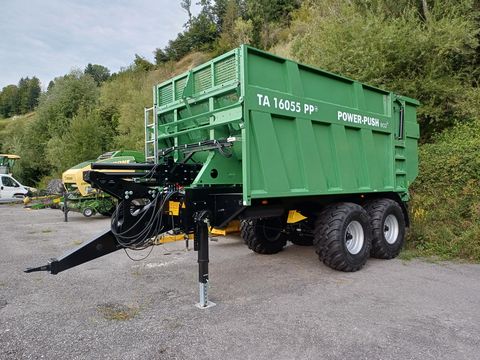
TOP
Price on request
BRANTNER TA 16055 Power Push+ Vorführmaschine, Bj. 2025 - **sofort verfügbar**+ 40 km/h Ausführung+ Bereifung 560/60 R 22.5 BKT FL 630+ Druckluftbremse mit A
BULLA Landtechnik GmbH
8954 Mitterberg /Sankt Martin

Premium Plus dealer
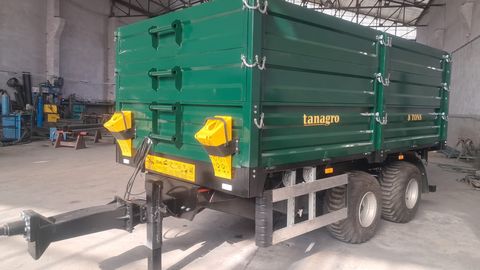
-5 %
17.005 €incl. VAT 20% Instead of:17.900 €
Der Kipper verfügt über ein beeindruckendes Brückenmaß von 4, 2 x 2, 1 Metern und bietet mit seinem 12m³ Volumen ausreichend Platz für große Mengen an Material. Das Ei
Agrarhandel Fritzl Patrick
9433 St. Andrä
Premium Plus dealer
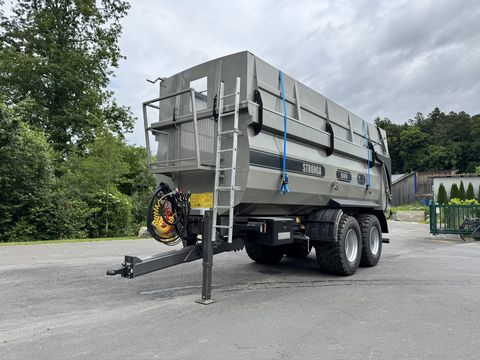
-15 %
42.415 €incl. VAT 20% Instead of:49.900 €
Neue STRONGA BL660 Tandem-Muldenkipper mit umfangreicher Ausstattung LAGERND & SOFORT verfügbar!- 6.632mm Innenlänge- Gesamtlänge 8.240mm- Gesamthöhe 2.900 b
Premium Gold dealer
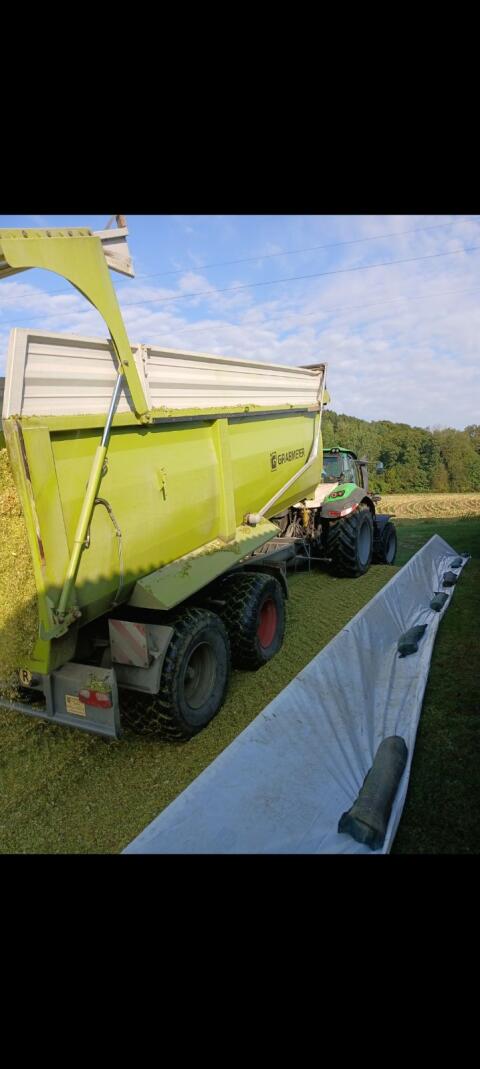
Classified ad
VIP
TOP
31.500 €Old Price 33.000 €
Verkaufe Grabmeier Muldenkipper in Claas-Lackierung, 24 t Gesamtgewicht und 40 km/h Zulassung, Laderaumabdeckung, Nachlauflenkachse, Achsstabilisierung beim Kippen.
8361 Hatzendorf
4 days online
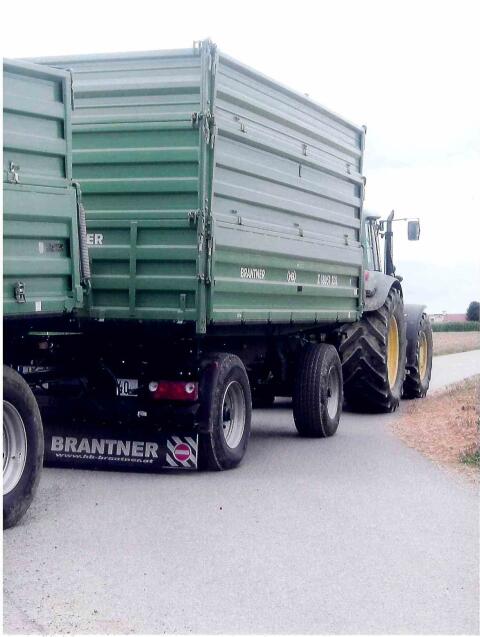
Classified ad
VIP
TOP
1.950 €
3. Satz Stahlaufsatzwände 600 mm zu verkaufen. Original Stahlaufsatzwände zu Brandtner 18051 XXL. Trailers Dumpers
4491 Niederneukirchen
4 days online
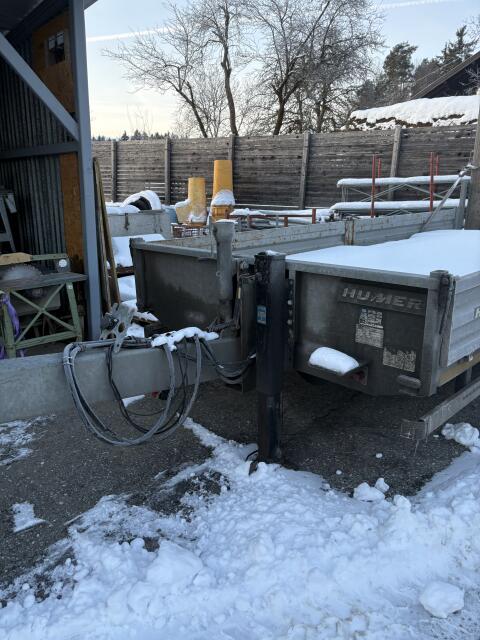
Commercial provider
TOP
20.000 €Old Price 22.500 €
Humer HTT 14000 verzinkt, Ladefläche über den Rädern, Tandem-Tieflader druckluftgebremst, Fahrwerk: 14.000 kg, Maße: 6.200x2.460x4.000 mm, Ladeflächenbreite innen 2.
9535 Schiefling am See
25 days online
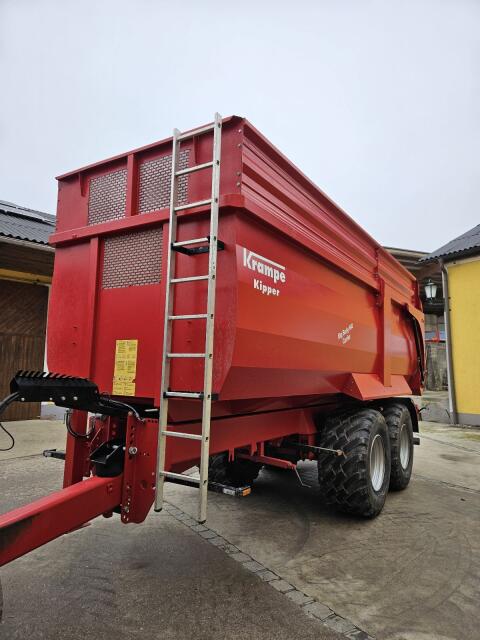
Classified ad
VIP
TOP
42.900 €Old Price 43.000 €
Zum Verkauf steht ein Krampe Kipper BigBody 640 Carrier. Trailers Dumpers
3383 Hürm
1 month online
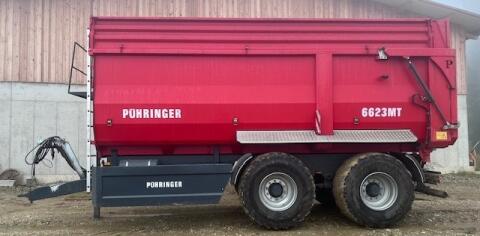
Commercial provider
VIP
TOP
33.600 €
Pühringer MT6623, Bj. 2018, guter Zustand, wenig gebraucht. Zubehör: Bordwanderhöhung abklappbar, Rollplane mit Trittplattform, Aufstiegsleiter, Kornauslaufschieber,
9470 St. Paul
6 days online
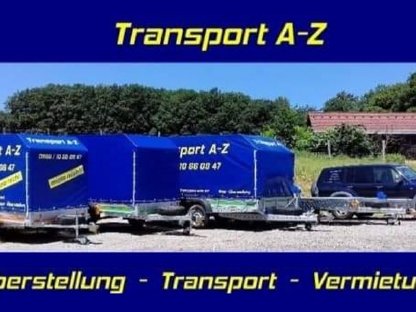
Commercial provider
VIP
Transport A-Z, Anhänger Verkauf, Vermietung, Planenanhänger Ges.Gew. 750 kg, Nutzlast 550 kg ungebremst, Ladefläche: 2.500 x 1.500 x 1.800 mm: für € 35, - am Tag, Pla
3033 Altlengbach
3 days online
Trailers are an indispensable means of transportation in agriculture. They enable the efficient transportation of crops, feed, machinery or other operating resources and make a significant contribution to the productivity of a farm. Depending on the area of use, agricultural trailers must be able to withstand high loads, cope with difficult terrain and ensure reliable handling.
Modern trailers are technically sophisticated and equipped with powerful braking, hydraulic and load securing systems. A stable design, durable axles and a high load capacity are particularly important. Safety aspects such as lighting, braking systems and support devices also play a decisive role in ensuring safe operation on the farm, in the fields and on the road.
Whoever is looking for a suitable trailer for their business should pay attention to the payload, coupling systems and technical equipment. A well-chosen model makes daily transportation tasks easier and significantly increases efficiency in agriculture.
There are many different types of agricultural trailers:
When buying a used trailer, the condition, payload, braking system and tires play a decisive role. Pay attention to a stable frame, intact hydraulics and functioning lighting. The hydraulic cylinders and drop sides of tipper trailers in particular should be checked. Many dealers offer inspected used models that are ready for immediate use - compare the offers and find the right model for your farm.
The permissible towing capacity of a tractor depends on its own weight, engine power and braking system. As a general rule, unbraked trailers may generally weigh up to 3.5 tons, while braked trailers can tow loads of 10 to 40 tons. Depending on the model, modern tractors with powerful braking systems can also pull even heavier trailers.
An air brake is mandatory for heavy trailers with a gross vehicle weight of around 8 tons or more. It ensures even distribution of the braking force and prevents uncontrolled braking. A powerful braking system is essential to ensure safety, especially in road traffic.
Agricultural trailers are subject to certain licensing regulations. In many countries, there are special regulations for speed, towing capacity and lighting. For example, agricultural trailers may often be driven without their own registration if they are used exclusively on the farm. Anyone driving a trailer on public roads must have a license and insurance, depending on the total weight.
The payload depends primarily on the intended use. While smaller tippers carry 5-10 tons, large dump trucks and low-loaders can carry payloads of over 20 tons.
Regular maintenance is important, especially for brakes, hydraulics and axles. An annual check helps to detect wear at an early stage and avoid major repairs.
The most common coupling systems are the drawbar eye coupling (for pin or jaw coupling), the K80 ball coupling (for more stability with heavy trailers) and the turntable coupling for more maneuverability.The choice of coupling depends on the combination of tractor and trailer as well as the permissible loads.
The tires of an agricultural trailer influence traction, soil protection and handling. Wide low-pressure tires reduce soil compaction in the field, while narrow high-pressure tires are better suited for road transport. Attention should also be paid to the tread pattern - studded tires offer better grip on unpaved surfaces, while road tires minimize rolling resistance.
The suspension ensures better load distribution and greater driving comfort. Common systems are leaf suspension, which is robust and cost-effective, and hydropneumatic suspension, which automatically adapts to the load and ensures a smooth ride. Good suspension reduces vibrations and protects the load and vehicle.